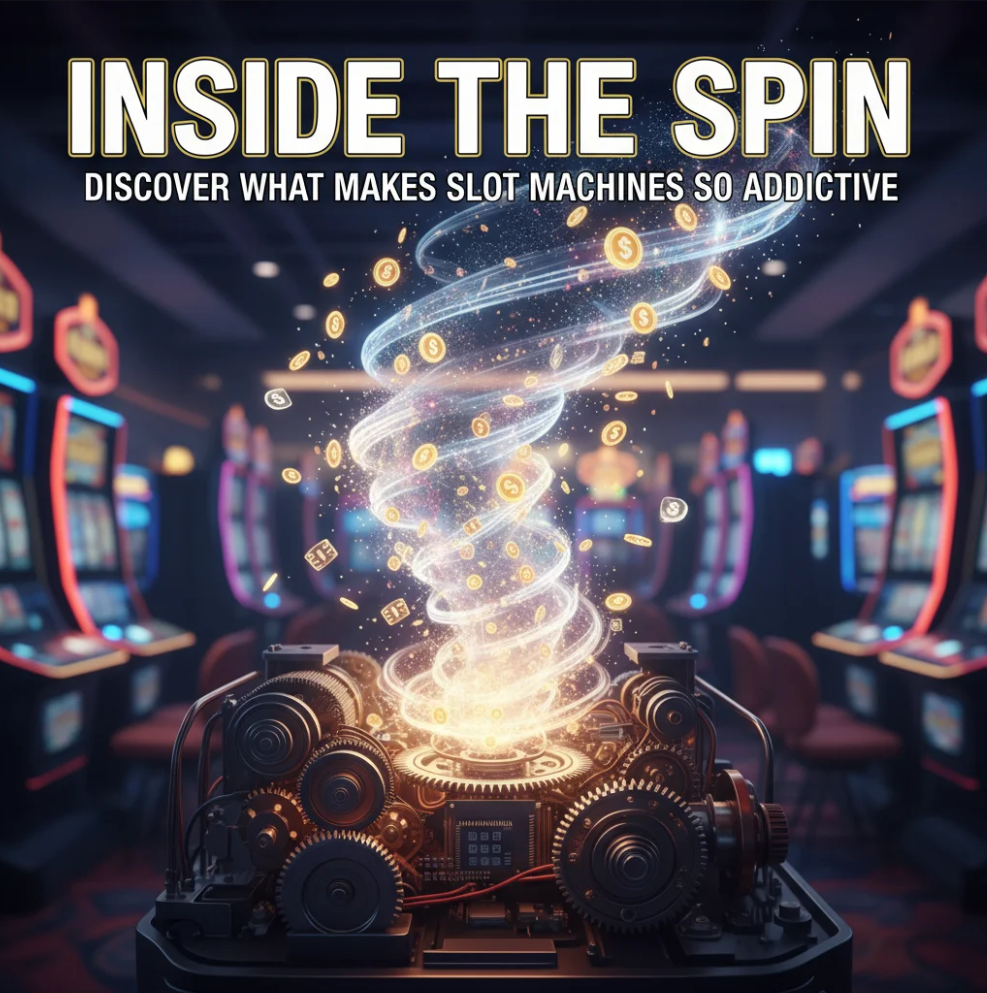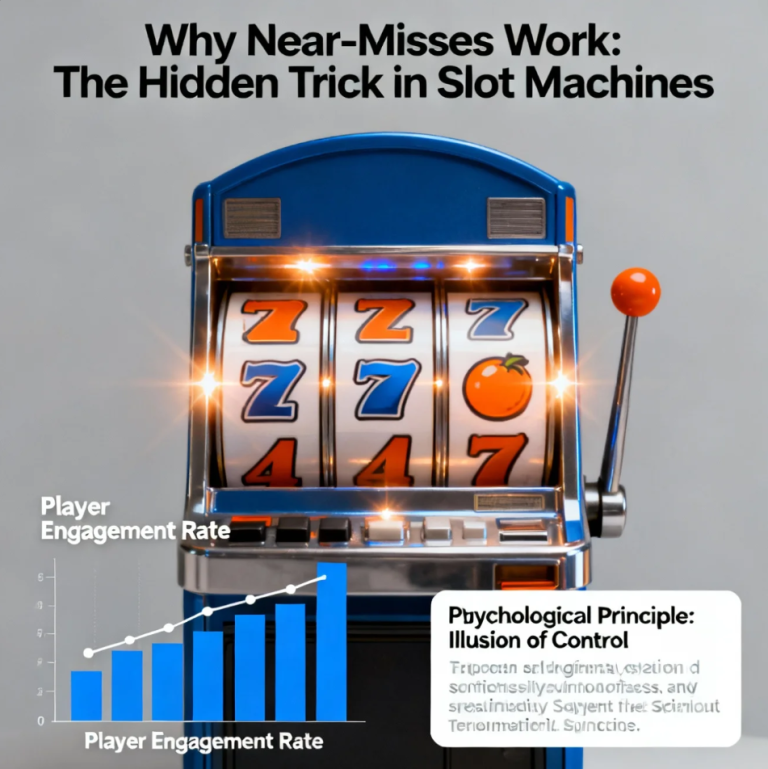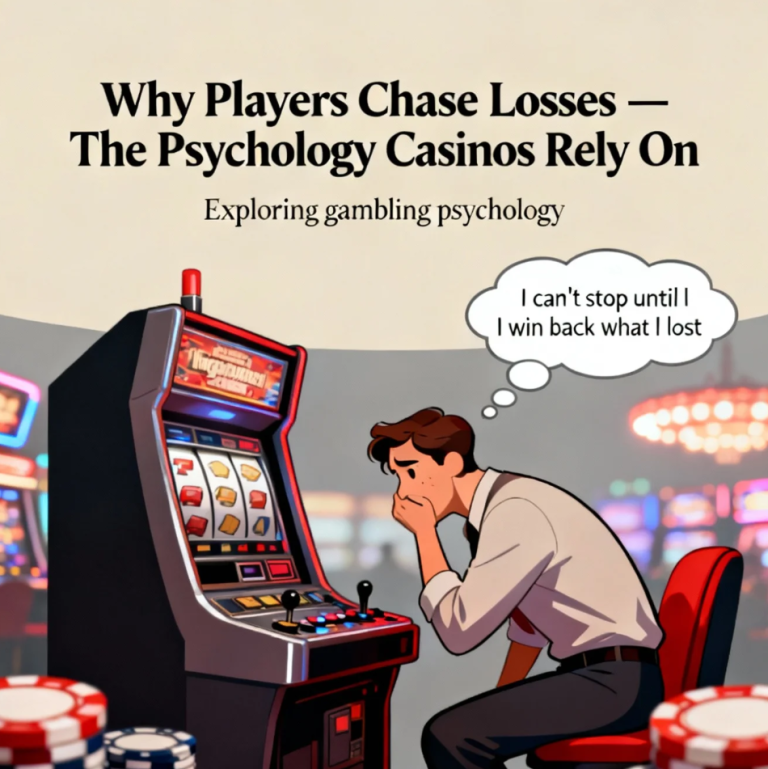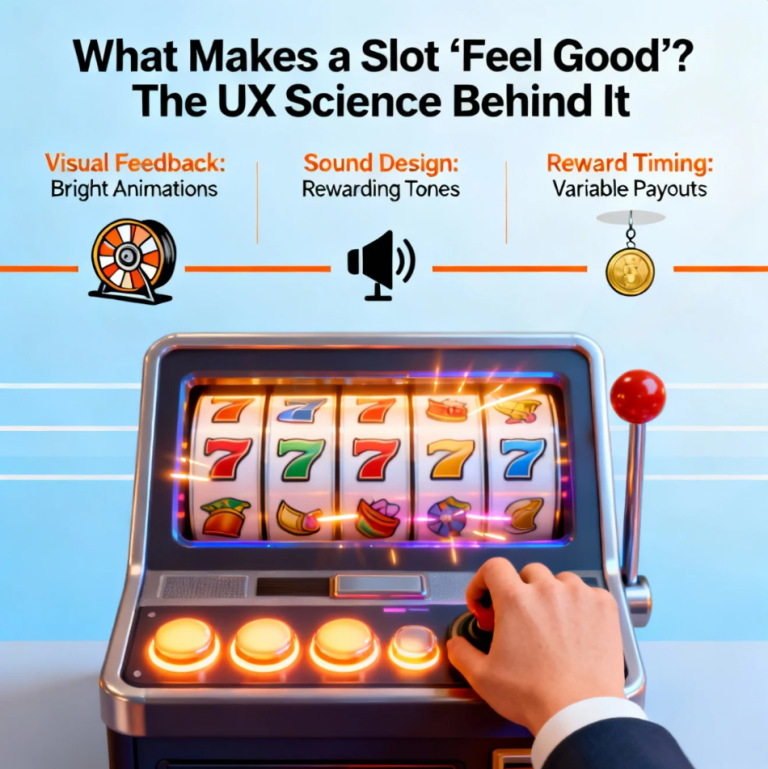
There’s something hypnotic about the sound of spinning reels, flashing lights, and the promise of a big win. But behind every pull of the lever lies a world of slot machine addiction psychology — a mix of design, emotion, and science crafted to keep players hooked.
Slot machines aren’t just games of chance. They’re masterpieces of behavioral design, engineered to stimulate the brain’s reward system and create powerful habits.
🎰 1. The Reward System: How the Brain Gets Hooked
When a player wins — even a small amount — the brain releases dopamine, the same feel-good chemical triggered by food, exercise, or social validation.
- Each spin offers unpredictable rewards, which strengthens the compulsion to play.
- The anticipation of winning is often more stimulating than the win itself.
- This pattern of “maybe next time” creates what psychologists call a variable reward system — the same principle behind social media likes and notifications.
The result? Players feel driven to keep spinning, chasing the rush of the next win.
🔊 2. Sound and Light: The Sensory Psychology of Slots
Slot machines are sensory experiences. Everything — from the colors to the jingles — is designed to capture attention and heighten excitement.
- Bright colors stimulate visual focus and excitement.
- Winning sounds play even for small payouts, creating an illusion of success.
- Near-miss effects, where symbols almost align, trick the brain into feeling progress.
These sensory cues create a flow state, where time fades and only the game matters.
🧠 3. The Illusion of Control
One of the strongest psychological hooks is the illusion of control — the belief that skill or timing affects the outcome.
- Players often feel they can “sense” when a machine is due for a win.
- Some tap the screen or use “lucky rituals” for perceived control.
In reality, every spin is randomized by algorithms, but the feeling of agency keeps players engaged.
💸 4. Near Misses and Losses Disguised as Wins
Slot designers use near misses and small payouts to manipulate emotions:
- Near misses release the same dopamine as wins, reinforcing play.
- Losses disguised as wins (LDWs) use sounds and visuals to celebrate outcomes where players actually lost money.
These tricks make losses feel less painful, encouraging continued play.
🧩 5. Digital Slots and the Rise of Mobile Gaming
Online and mobile slots have taken these psychological triggers to the next level:
- Push notifications remind users to play.
- Daily rewards and bonuses mimic social gaming mechanics.
- Immersive visuals and themes make gameplay feel more personal.
As a result, the line between entertainment and compulsion becomes thinner than ever.
🌟 6. Responsible Gaming: Awareness Is Key
Understanding slot machine addiction psychology is the first step toward responsible gaming. Experts recommend:
- Setting time and budget limits
- Taking regular breaks
- Using self-exclusion or cooling-off features on gaming platforms
Awareness empowers players to enjoy gaming without falling into addictive patterns.
Conclusion
The psychology behind slot machines is a mix of science, design, and emotion — crafted to keep players engaged and spinning. From dopamine surges to sensory cues and perceived control, every element serves a purpose.
Recognizing these mechanisms isn’t about quitting fun — it’s about playing smarter and staying in control.



